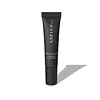What's inside
What's inside
 Key Ingredients
Key Ingredients

 Benefits
Benefits

 Concerns
Concerns

 Ingredients Side-by-side
Ingredients Side-by-side

Diisostearyl Malate
EmollientHydrogenated Polyisobutene
EmollientVp/Hexadecene Copolymer
Synthetic Beeswax
Emulsion StabilisingDextrin Palmitate
EmulsifyingAstrocaryum Murumuru Seed Butter
EmollientMangifera Indica Seed Butter
Skin ConditioningPunica Granatum Seed Oil
EmollientCucumis Sativus Seed Oil
EmollientPhytosterols
Skin ConditioningHibiscus Sabdariffa Seed Oil
EmollientBisabolol
MaskingPassiflora Edulis Seed Oil
EmollientHippophae Rhamnoides Fruit Extract
Skin ConditioningTocopherol
AntioxidantCholesterol
EmollientCeramide EOP
Skin ConditioningCeramide NP
Skin ConditioningCeramide As
Skin ConditioningCeramide AP
Skin ConditioningCeramide Ns
Skin ConditioningUbiquinone
AntioxidantFerulic Acid
AntimicrobialPalmitoyl Tripeptide-1
Skin ConditioningCetearyl Ethylhexanoate
EmollientSorbitan Isostearate
EmulsifyingPortulaca Pilosa Extract
Skin ConditioningSucrose Cocoate
EmulsifyingPalmitoyl Tripeptide-38
Skin ConditioningGlyceryl Stearate
EmollientAllantoin
Skin ConditioningAscorbyl Palmitate
AntioxidantEthyl Vanillin
MaskingHydrogenated Lecithin
EmulsifyingDipropylene Glycol
HumectantCI 77891
Cosmetic ColorantIsopropyl Titanium Triisostearate
EmollientCI 77491
Cosmetic ColorantCI 77492
Cosmetic ColorantDiisostearyl Malate, Hydrogenated Polyisobutene, Vp/Hexadecene Copolymer, Synthetic Beeswax, Dextrin Palmitate, Astrocaryum Murumuru Seed Butter, Mangifera Indica Seed Butter, Punica Granatum Seed Oil, Cucumis Sativus Seed Oil, Phytosterols, Hibiscus Sabdariffa Seed Oil, Bisabolol, Passiflora Edulis Seed Oil, Hippophae Rhamnoides Fruit Extract, Tocopherol, Cholesterol, Ceramide EOP, Ceramide NP, Ceramide As, Ceramide AP, Ceramide Ns, Ubiquinone, Ferulic Acid, Palmitoyl Tripeptide-1, Cetearyl Ethylhexanoate, Sorbitan Isostearate, Portulaca Pilosa Extract, Sucrose Cocoate, Palmitoyl Tripeptide-38, Glyceryl Stearate, Allantoin, Ascorbyl Palmitate, Ethyl Vanillin, Hydrogenated Lecithin, Dipropylene Glycol, CI 77891, Isopropyl Titanium Triisostearate, CI 77491, CI 77492
Diisostearyl Malate
EmollientBis-Behenyl/Isostearyl/Phytosteryl Dimer Dilinoleyl Dimer Dilinoleate
EmollientBis-Diglyceryl Polyacyladipate-2
EmollientHydrogenated Polyisobutene
EmollientOctyldodecanol
EmollientMicrocrystalline Wax
Emulsion StabilisingSynthetic Wax
AbrasiveParfum
MaskingPolyglyceryl-2 Triisostearate
EmulsifyingPunica Granatum Seed Oil
EmollientCI 77891
Cosmetic ColorantSilica Dimethyl Silylate
EmollientCI 77491
Cosmetic ColorantCI 19140
Cosmetic ColorantCI 77499
Cosmetic ColorantWater
Skin ConditioningTocopherol
AntioxidantSqualane
EmollientCI 15850
Cosmetic ColorantCeramide NP
Skin ConditioningGlycine Max Polypeptide
Skin Conditioning1,2-Hexanediol
Skin ConditioningPropylene Glycol
HumectantButylene Glycol
HumectantPolyglutamic Acid
Skin ConditioningSodium Hyaluronate
HumectantEthylhexylglycerin
Skin ConditioningDiisostearyl Malate, Bis-Behenyl/Isostearyl/Phytosteryl Dimer Dilinoleyl Dimer Dilinoleate, Bis-Diglyceryl Polyacyladipate-2, Hydrogenated Polyisobutene, Octyldodecanol, Microcrystalline Wax, Synthetic Wax, Parfum, Polyglyceryl-2 Triisostearate, Punica Granatum Seed Oil, CI 77891, Silica Dimethyl Silylate, CI 77491, CI 19140, CI 77499, Water, Tocopherol, Squalane, CI 15850, Ceramide NP, Glycine Max Polypeptide, 1,2-Hexanediol, Propylene Glycol, Butylene Glycol, Polyglutamic Acid, Sodium Hyaluronate, Ethylhexylglycerin
 Reviews
Reviews

Ingredients Explained
These ingredients are found in both products.
Ingredients higher up in an ingredient list are typically present in a larger amount.
Ceramide NP is a type of ceramide.
Ceramides are intercellular lipids naturally found in our skin that bonds dead skin cells together to create a barrier. They are known for their ability to hold water and thus are a great ingredient for dry skin.
Ceramides are an important building block for our skin barrier. A stronger barrier helps the skin look more firm and hydrated. By bolstering the skin ceramides act as a barrier against irritating ingredients. This can help with inflammation as well.
If you would like to eat ceramides, sweet potatoes contain a small amount.
Read more about other common types of ceramides here:
Ceramide AP
Ceramide EOP
Ci 77491 is also hydrated iron III oxide. It's sole purpose is to give a red/pink hue to products.
Iron III oxides are classified as inorganic chemicals for coloring.
Synthetically created Ci 77491 is considered safer than those naturally found. This is because the synthetically created version may contain less impurities. Iron oxides are generally non-toxic and non-allergenic.
Learn more about CI 77491Ci 77891 is a white pigment from Titanium dioxide. It is naturally found in minerals such as rutile and ilmenite.
It's main function is to add a white color to cosmetics. It can also be mixed with other colors to create different shades.
Ci 77891 is commonly found in sunscreens due to its ability to block UV rays.
Learn more about CI 77891Diisostearyl Malate is an emollient and most often used in lip products. It comes from isostearyl alcohol, a fatty acid, and malic acid, an AHA.
As an emollient, Diisostearyl Malate helps create a thin film on your skin to trap moisture in. This helps keep your skin soft and smooth.
Hydrogenated Polyisobutene is a synthetic polymer. Polymers are compounds with high molecular weight. Hydrogenated Polyisobutene is an emollient and texture enhancer.
In one study, Hydrogenated Polyisobutene showed better skin hydration levels than Caprylic/Capric Triglyceride. As an emollient, it helps keep your skin soft and hydrated by trapping moisture in.
Hydrogenated Polyisobutene is often used as a mineral oil replacement.
Learn more about Hydrogenated PolyisobutenePunica Granatum Seed Oil is created from the seeds of the pomegranate. Pomegranate seed oil helps hydrate the skin, is anti-inflammatory, and contains antioxidants.
Pomegranates are rich in fatty acids, including an unsaturated fatty acid by the name of Punicic acid. Other components of pomegranates include Vitamin E, Vitamin C, and bioactive lipids such as phytosterols, phospholipids, and triterpenes. Punicic acid helps soothe inflammation.
As an emollient, pomegranate oil creates a thin film on the skin. This film helps prevent moisture loss, keeping your skin hydrated.
Learn more about Punica Granatum Seed OilTocopherol (also known as Vitamin E) is a common antioxidant used to help protect the skin from free-radicals and strengthen the skin barrier. It's also fat soluble - this means our skin is great at absorbing it.
Vitamin E also helps keep your natural skin lipids healthy. Your lipid skin barrier naturally consists of lipids, ceramides, and fatty acids. Vitamin E offers extra protection for your skin’s lipid barrier, keeping your skin healthy and nourished.
Another benefit is a bit of UV protection. Vitamin E helps reduce the damage caused by UVB rays. (It should not replace your sunscreen). Combining it with Vitamin C can decrease sunburned cells and hyperpigmentation after UV exposure.
You might have noticed Vitamin E + C often paired together. This is because it is great at stabilizing Vitamin C. Using the two together helps increase the effectiveness of both ingredients.
There are often claims that Vitamin E can reduce/prevent scarring, but these claims haven't been confirmed by scientific research.
Learn more about Tocopherol